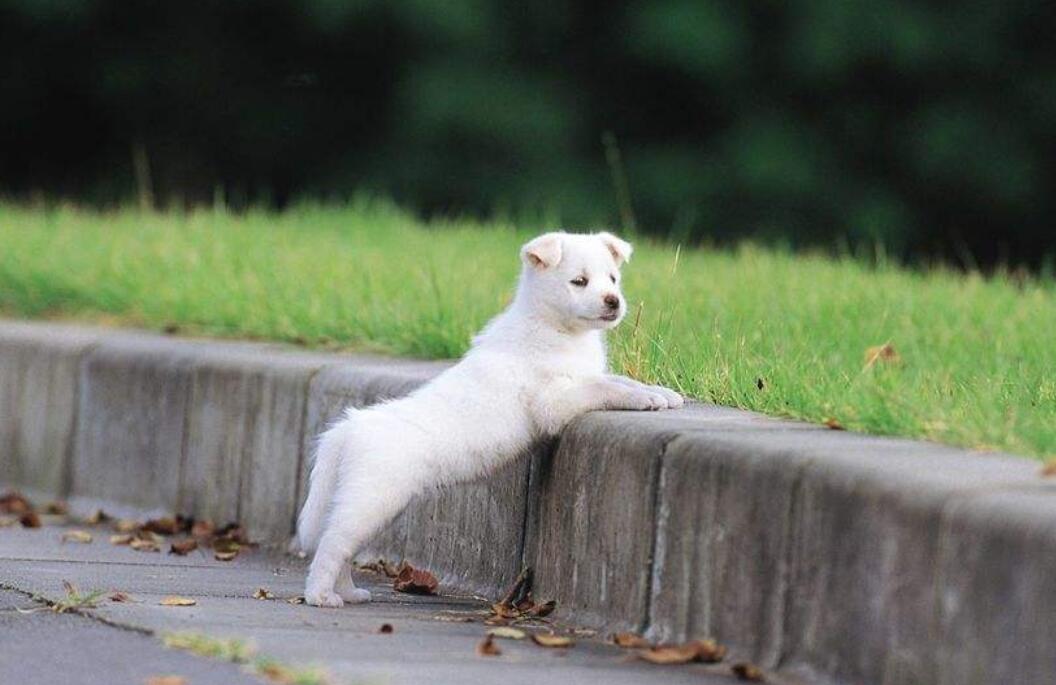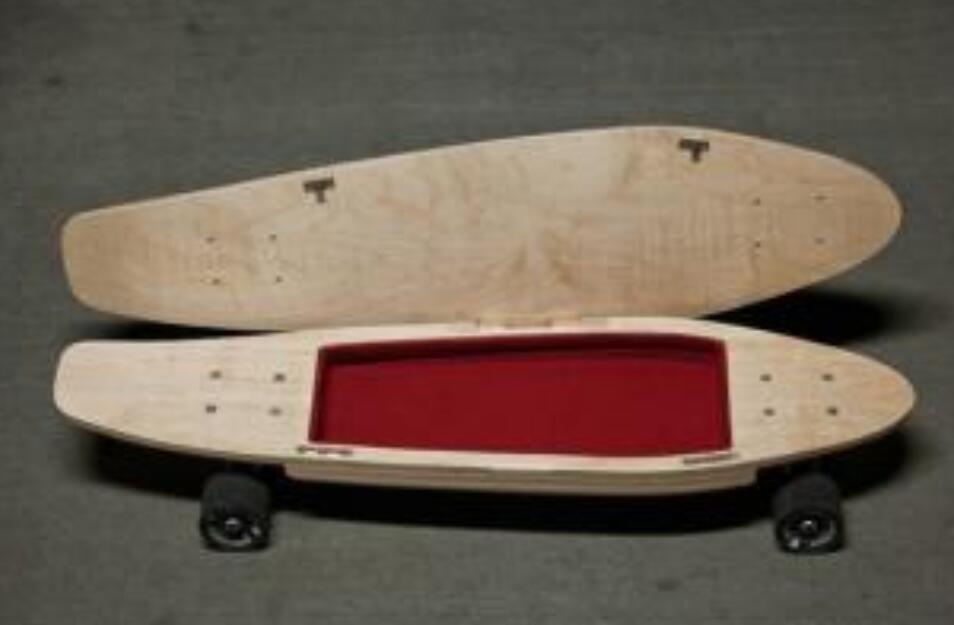
作文一:《[一般将来时的用法]一般将来时的用法》6300字
[一般将来时的用法]一般将来时的用法 篇一 : 一般将来时的用法
―助动词will或shall,动词原形‖这一形式,但shall仅表示单纯将来时,用于第一人称I和we表示将来发生的事情,用于征求对方的意见或表示客气的邀请。在口语中will用于所有人称,书面语中第一人称常用shall.如:
1. Tomorrow will be Sunday. 明天就是星期天。
2. The rain will stop soon. 雨很快就要停了。
3. Shall we go there at five, 我们五点钟去那儿,好吗,
4. Will you please open the door, 请你把门打开,好吗,
will,shall可用来预言将来发生的事。如说出我们设想会发生的事,或者请对方预言将要发生什么事。例如:
It will rain tomorrow. 明天将要下雨。
will,shall除可表示单纯的将来时以外,还可以带有意愿的色彩,仍指的是将来。例如:
I’ll buy you a bicycle for your birthday.你过生日时,我给你买一辆自行车。
Will you open the door for meplease,请你帮我开门好吗,
Shall I get your coat for you,我可以为你拿外套吗,
1.表示说话人根据现在已有的迹象,判断将要或即将发生某种
情况。这类句子的主语可以是人,也可是物。例如:
There is going to be a football match in our schooltomorrow
afternoon. 明天下午我们学校将有一场足球赛
I feel terrible.I think I’m going to die.我感到难受极了,我想我快不行了。
Look at those black clouds~It’s going to rain.看看那些乌云~天快要下雨了。
2.表示主语现在的意图或现已作出的决定,即打算在最近或将来进行某事。这种意图或决定往往是事先经过考虑的。例如:
He isn’t going to see his elder brothertomorrow. 他明天不准备去看他哥哥。
Mary is going to be a teacher when she growsup. 玛丽决定长大了当一名教师。
3.只是单纯地预测未来的事,此时可与will互换。例如:
I think it is going to/will rain this evening.我认为今晚要下雨。
注意:
be goingto和will在含义和用法上略有不同。be goingto往往表示事先经过考虑的打算;will多表示意愿、决心。两者有时不能互换。例如:
He is studying hard and is going to try for theexams. 他正努力学习,准备参加考试。
—Can somebody help me,——谁能帮我一下吗,
—I will. ——我来。 1. We’regoing to meet outside the school
gate. 我们打算在校门口见面。
Look~ It’s going to rain. 瞧~快下雨了。
表示位置转移的动词和其它几个动作动词常与现在进行时和表示将来的时间状语连用,表示在最近将要发生某事。这些事是事先安排好的。例如:
The Browns are ing to dinner tomorrow.明天布朗夫妇要来吃晚饭。
What are you doing tomorrow,明天你做什么,
The train is arriving at nine o’clock.火车将在九点钟到。
在特定的上下文中,这类动词有时也可不带时间状语。例如:
—Come to school in your old clothes tomorrow . ——明天穿你的旧衣服来上学。
—Why,What’s happening,——为什么,有什么事,
1.动词be;表示位置转移的动词和表示―开始,结束‖的动词与一般现在时和表示将来的时间状语连用,表示时间表、节目单或日程表上所安排好的动作或事态将要发生,日程不易改变,口气肯定。例如:
School finishes on January 18th.学期一月十八日结束。
Are you free next Tuesday evening,下周二晚上你有空吗,
The party starts at four thirty,doesn’t it,晚会四点半开始,是
吗,
Mr Green leaves Beijing for home tomorrow.格林先生定于明天离京返家。
2. 在由when,before,as soonas,until/till引导的时间状语从句和由if引导的条件状语从句中,常用一般现在时表示将来。例如:
If it doesn’t rain tomorrow,we’ll go to theEast Lake. 如果明天不下雨,我们就去东湖。
I must finish my homework before my motherreturns. 我必须在妈妈回来之前做完家庭作业。
3.在hope后接表示将来时间的宾语从句中,也可用一般现在时代替一般将来时,hope的主语往往是第一人称。例如:
I hope youhave a good holiday.我希望你假日愉快。
I hope he es. 我希望他会来。
如:
1. He is to visit Japan next year. 明年他将访问日本。
2. They’re about to leave. 他们就要走了。
一般将来时专项练习
一、单项选择。
1. There __________ a meetingtomorrow afternoon.
A. will be goingtoB. will going to be C. is goingto be D. will go to
be
2. Charlie ________ here nextmonth.
A. isn’tworkingB. doesn’t working
C. isn’t going toworkingD. won’t work
3. He ________ very busy thisweek, he ________ free next week.
A. will be;isB. is; is C.will be; will be D. is; will be
4. There ________ a dolphin showin the zoo tomorrow evening.
A.wasB. is going to haveC. willhaveD. is goingto be
5. –________ you ________ freetomorrow?
– No. I ________ free the day after tomorrow.
A. Are; going to;willB. Are; going to be; will C.Are; going to; will be D. Are; going to be; will be
6. Mother ________ me a nicepresent on my next birthday.
A. willgives B. willgive C.givesD. give
7. – Shall I buy a cup of teafor you?
–________.
A. No, youwon’t.B. No, you aren’t.C. No,please don’t. D.
No,please.
8. – Where is the morningpaper?
– I ________ if for you at once.
A.getB. am gettingC. to getD. will get
9. ________ a concert nextSaturday?
A. There willbe B. Willthere be C. There can beD.There are
10. If they e, we ________ a meeting.
A. have B. willhave C.hadD. would have
11. He ________ her a beautiful hat on her nextbirthday.
A.givesB.gave C. will givingD. is going to giving
12. He ________ to us as soon as he gets there.
A.writesB. has written C. will writeD. wrote
13. He ________ in three days.
A. ingback B. cameback C. will e backD. is going to ing back
14. If it ________ tomorrow, we’ll goroller-skating.
A. isn’t rain B. won’train C. doesn’train D. doesn’t fine
15. – Will his parents go to see the Terra CottaWarriors tomorrow?
– No, ________.
A. theywilln’t. B. they won’t.C. theyaren’t. D. they don’t.
16. Who ________ we ________ swimming with
tomorrowafternoon?
A. will;go B. do;goC. will; going D. shall; go
17. We ________ the work this way next time.
A.doB. will doC. going to doD. will doing
18. Tomorrow he ________ a kite in the open airfirst, and then ________ boating in the park.
A. will fly;will go B.will fly; goesC. is going to fly; will goesD. flies; will go
19. The day after tomorrow they ________ avolleyball match.
A. willwatching B. watchesC. iswatching D.is going to watch
20. There ________ a birthday party thisSunday.
A. shallbeB. will beC. shall going to beD. will going to be
21. They ________ an English evening nextSunday.
A. arehaving B. aregoing to haveC. will havingD. is going to have
22. ________ you ________ free next Sunday?
A. Will; areB. Will; beC. Do;beD. Are; be
23. He ________ there at ten tomorrow morning.
A.willB. is C. willbe D. be
24. ________ your brother ________ a magazine fromthe library?
A. Are; going to borrowB. Is; going to borrowC. Will;borrows D. Are; going to borrows
25. – Shall I e again tomorrow afternoon?
–________ .
A. Yes, pleaseB. Yes, you will. C. No, please.D. No, youwon’t.
26. It ________ the year of the horse nextyear.
A. is going tobe B. is going toC. will beD. willis
27. ________ open the window?
A. Will youplease B. Please will you C.You please D. Do you
28. – Let’s go out to play football, shallwe?
– OK. I________.
A. willing B. begoing to e C.e D. aming
29. It ________ us a long time to learn Englishwell.
A.takesB. willtake C.spends D.will spend
30. The train ________ at 11.
A. going toarrive B. will bearrive C. is going toD. is arriving
篇二 : 一般将来时的用法和说明
作文二:《一般将来时的构成》2100字
一般将来时的构成:
人称 肯定句 否定句
一 I/We will/ am/is/are going to + do. I/We will not will/ am/is/are not going to + do
二 You will / am/is/are going to + do You will / am/is/are not going to + do
三 He/She/It/They will / am/is/are going to + do He/She/They will / am/is/are not going to + do
will= am/is/are going to
一般将来时由助动词(will,shall)+动词原形构成,shall主要用于以第一人称(I,We)为主语的疑问句中.
1.概念:表示将要发生的动作或存在的状态及打算、计划或准备做某事。
2.时间状语:tomorrow, next day(week, month, year…),soon, in a few minutes, by…,the day after tomorrow, etc.
3.基本结构:am/is/are/going to + do;will/shall + do.
4.否定形式:will + not am/is/are not going to 动词用原形
5.一般疑问句:be放于句首;will/shall提到句首。
6.例句:They are going to have a petition with us in studies. It is going to rain.
1. There __________ a meeting tomorrow afternoon.
A. will be going to B. will going to be C. is going to be D. will go to be
2. Charlie ________ here next month.
A. isn’t working B. doesn’t working C. isn’t going to working D. won’t work
3. He ________ very busy this week, he ________ free next week.
A. will be; is B. is; is C. will be; will be D. is; will be
4. There ________ a dolphin show in the zoo tomorrow evening.
A. was B. is going to have C. will have D. is going to be
5. –________ you ________ free tomorrow? – No. I ________ free the day after tomorrow.
A. Are; going to; will B. Are; going to be; will
C. Are; going to; will be D. Are; going to be; will be
6. Mother ________ me a nice present on my next birthday.
A. will gives B. will give C. gives D. give
7. – Shall I buy a cup of tea for you? –________. (不,不要。)
A. No, you won’t. B. No, you aren’t. C. No, please don’t. D. No, please.
8. – Where is the morning paper? – I ________ if for you at once.
A. get B. am getting C. to get D. will get
9. ________ a concert next Saturday?
A. There will be B. Will there be C. There can be D. There are
10. If they e, we ________ a meeting.
A. have B. will have C. had D. would have
作文三:《一般将来时的用法》5900字
一般将来时1(2011-12-25)
一、一般将来时的定义:一般将来时表示将来某个时间要发生的动作或存在的状态,也表示将来经常或重复发生的动作。
如:I’m going to study tomorrow.
I will(shall) study tomorrow.
一般将来时的构成:
1. 主语+ be(am, is, are) going to +动词原形+其他.
2. 主语+ will(shall) +动词原形
二、be going to
1. 肯定句:主语+be going to +动词原形+其他.
表示对于将要发生的事,或打算、计划、决定要做的事情,一般表示主观上打算去做的动作。 I am going to play football next Sunday.
He is going to travel around the world.
They ’re going to meet outside the school gate.
It is going to rain.
2. 否定句:主语+ be(am, is, are)not going to +动词原形+其他.
We are not going to have any class next week.
He isn’t going to see his brother tomorrow.
3. 疑问句:Be(Am, Is, Are) +主语+going to+动词原形+其他?
---Are you going to be a doctor when you grow up?
--- Yes, I am./ No, I’m not.
--- Is your sister going to bring lunch?
--- Yes, she is. / No, she isn’t.
4. 特殊疑问句:(What, Where…)+ be(am, is, are) +主语+going to +动词原形+其他? --- What are you going to do next Sunday?
---I ’m going to go fishing.
对划线部分提问:
注意:Who 和Where 的问句:
1. Who 问句和when 问句都是特殊疑问句,但结构不同。
2. Who 问句用疑问词who 对主语进行提问,所以who 就是这个句子的主语,后面不可能再
出现主语。
3. When 问句是用疑问词when 对句子中的时间状语提问,所以when 后面的句子中一定要有
主语。
三、Will/Shall
1. 肯定句:主语+will(shall) +动词原形+其他.
I will call you this evening.
Some day people will go to the moon.
It will snow in Qujing in winter.
注意:当主语是I 或者we 时,疑问句中一般用shall ,表示征求对方意见。
2. 否定句:主语+ will(shall) not +动词原形+其他.
I will not(won’t) tell it to him.
He won ’t have time to read English.
The birds won ’t fly away to the south when the weather turns cold.
3. 疑问句:Will(Shall) +主语+动词原形+其他?
--- Will he be back in two days?
--- Yes, he will./ No, he will not.(won’t)
--- Shall we have any class tomorrow?
--- Yes, we will(we shall).
--- No, we won’t.(we shall not)
--- Shall I go home now?
--- Yes, you will.(Sure…)
--- No, you won’t.(I’m sorry. You can’t. )
--- Will you please open the window?
--- Yes, I will.(Of course. Sure.)
--- No, I won’t.(I’m sorry. I can’t.)
注意: 当主语为I 或者we 时,疑问句中一般用shall, 表示征求对方意见。
Shall I …? 或Shall we…? 常用来征求对方意见。
而在问对方是否愿意, 或者表示客气的邀请或命令时,常用Will you…?
4. 特殊疑问句:特殊疑问词+will/ shall +主语+动词原形+其他?
---When will Mike arrive here tomorrow?
--- He will arrive here at three o’clock.
---Where shall we meet tomorrow?
--- Six o’clock.
对划线部分提问:
表示客观事实时常用will/shall)
四、一般将来时的判断
1. 句中一般用到表示有将来时间状语时,用将来时。这样的时间状语有:
(1) “tomorrow 一家”, 如:tomorrow morning, at six o’clock tomorrow afternoon.
(2) “next 一家”, 如:next month, at four thirty next Friday afternoon.
(3)”this 一家”,如:at the end of this year
(4)表示将来时间短语和日期:
Soon, from now on, in the future, in a few days’ time, in a moment , in the year 2012.
如: Mr. Smith is going to have a concert next Saturday.
Tom ’
2. 有迹象表明或从句意判断出某一动作或状态是在将来发生或存在的,也用将来时。
如:The boys are putting their books and pens in their backpacks. I think they are going to go home.
课堂练习(2011-12-17)
一、对划线部分提问: 对划线部分提问)
_________is he _________ ________ __________ ?
对划线部分提问)
__________ __________ Mike _________ to play soccer?
3. Yoyo is going to be an actress when she grows up. (改为否定句)
______________________________________________________
二、单项选择
1. There __________ a meeting tomorrow afternoon.
A. will be going to B. will going to be
C. is going to be D. will go to be
2. Charlie ________ here next month.
A. isn’t working B. doesn’t working
C. isn’t going to working D. won’t work
3. He ________ very busy this week, he ________ free next week.
A. will be; is B. is; is C. will be; will be D. is; will be
4. There ________ a dolphin show in the zoo tomorrow evening.
A. was B. is going to have C. will having D. is going to be
5. Mother ________ me a nice present on my next birthday.
A. will gives B. will give C. gives D. give
6. ________ a concert next Saturday?
A. There will be B. Will there be C. There can be D. There are
7. He ________ her a beautiful hat on her next birthday.
A. gives B. gave C. will giving D. is going to give
8. He ________ in three days.
A. ing back B. came back C. will e back D. is going to ing back
9. – Will his parents go to see the Terra Cotta Warriors tomorrow?
– No, ________ (不去).
A. they willn’t B. they won’t. C. they aren’t D. they don’t.
10. Who ________ we ________ swimming with tomorrow afternoon?
A. will; go B. do; go C. will; going D. shall; go
三、阅读理解:
Once upon a time, there lived a rich man. He had a servant (仆人). He and the servant loved wine and good food very much. Each time the rich man left his home, the servant would drink the wine and eat up all the nice food in the house. The rich man knew what his servant did, but he had never caught his servant doing that.
One morning, when he left home, he said to the servant, “Here are two bottles of poison (毒药) and some nice food in the house. You must take of them.” With these words, he t out.
But the servant knew that the rich man had said was untrue. After the rich man was away from his home, he enjoyed a nice meal. Because he drank too much, he was drunk and fell to the ground. When the rich man came back, he couldn’t find his food and his wine. He became very angry. He woke the servant up. But the servant told his story very well. He said a cat had eaten up everything. He was afraid to be punished(惩罚), so he drank the poison to kill himself.
( )1.In the story, _______ liked wine and good food very much.
A. the rich man B. the servant C. both A and B D. neither A and B
( )2.The rich man knew that it was _______ that drank the wine and ate up all the nice food.
A. the cat B. himself C. nobody D. the servant
( )3.The rich told the servant that there was poison in the two bottles, because ________.
A. there was in fact poison in the bottles
B. did not want the servant to drink his wine
C. he wanted to kill the cat
D. he wanted to kill the servant
( )4.In fact, _______ ate all the nice food and drank the wine.
B. cat C. the rich man D. nobody
A. the servant ( )5.From the story, we know that the servant is very _______.
B. bad C. clever D. kind
A. lazy
作文四:《一般将来时的答案》2500字
例题讲解:
1. C 这个句型是there be与be going to的结合,结合后是there is going to be。
2. D A是进行时态的,B与 C 构成都有问题,doesn’t 与be going to 后面都应该放动词原型。
3. D 根据时间状语this week和next week断定出前半句一般现在时,根据后半句判断应该是一般将来时。
4. D 理由同第一题的一样。
5. D be free是固定搭配,所以无论是用be going to句型还是用will句型都不能少了be。
6. B.. 根据next birthday判断,这个句子应该是一般将来时的,它的构成应该是will + 动词原形。
7(C 事实上这个句子不是一般将来时,是一个请求别人许可的句子。所以回答的时候应该比较客气。
8(D at once 是一个一般将来时的时间状语,所以这个用一般将来时。
9(B 从句子结尾的问号看,这个句子是问句,只有B选项是按照问句的形式给出的。
10(B 这是一个典型的主将从现的句型,条件从句是现在时的,主句应该是将来时的。
11(D on her next birthday.这个时间状语说明时态上应该是一般将来时。
12(C 这是一个典型的主将从现的句型,时间状语从句是现在时的,主句应该是将来时的。
13(C in three days是一个一般将来时的时间状语,意思是三天以后,所以是一般将来时的句子。
14(C 这是一个典型的主将从现的句型,主句是将来时的,条件从句应该是现在时的。
15(B 所问要所答。
课堂练习:
I.按要求改写下列各句。
1. Are you; No, aren’t 2. is not 3. What’s, going to do 4. How are, going to
5. are going to have 6. is going to have 7. won’t 8. Will you
II. 把下列各句翻译成英语,每空一词。
1. am going to 2. are you going to do;am going to 3. Will;will;is going to
4. are, going to 5. is; will 6. Is, going fishing, going swimming
III. 用所给词的适当形式填空。
1. are going to/will have 2. is going/will go 3. goes, is going/will
go
4. is going to /will visit 5. is going to/will give 6. am planning
IV. 选择填空。
1. C。本题考查时态,根据时间状语this evening可知用一般将来时。A 项为过去将来时,不符合句意;B/D两项均表示“去了”;只有C项表示“将来去”,故选C。
2. B。本题考查be going to 与 will 的区别。句末有soon,句子用将来时,可排除C、D 两项。有某种迹象判断可能发生的事情用be going to表示将来。
3. B。由时间状语可知用将来时。there be 句型的一般将来时为:there will be 或
there is going
to be,故选B。
4. B。此题考查there be结构的将来时,后接名词复数,谓语动词用are。
5. B。考查there be句型的将来时用be going to do形式;on 表示“关于、有关”。
课后练习:
I.选择填空。
1. C。本题考查时态,根据时间状语this evening可知用一般将来时。A 项为过去将
来时,不符合句意;B/D两项均表示“去了”;只有C项表示“将来去”,故选C。
2. B。本题考查be going to 与 will 的区别。句末有soon,句子用将来时,可排除
C、D 两项。有某种迹象判断可能发生的事情用be going to表示将来。
3. B。有时间状语可知用将来时。there be 句型的一般将来时为:there will be 或
there is going
to be,故选B。
4. B。此题考查there be结构的将来时,后接名词复数,谓语动词用are。
5. B。考查there be句型的将来时用be going to do形式;on 表示“关于、有关”。
II. 完成句子,每空一词。
1. am going to 2. are you going to do;am going to 3. Is; going to; is; is going to
4. are, going to 5. is; will
III. 句式转换,每空一词。
1. isn’t 2. won’t; or 3. Are you going 4. Will you 5. What is; going
to do
6. When are your 7. Are you; No, aren’t 8. is not 9. What’s, going to do
10. How are, going to 11. are going to have 12. is going to have
IV. 用所给词的适当形式填空。
1. going to have 2. goes 3. watch; catch 4. is going to watch; catch
5. are you going to do\will you do; am going to milk\will 6. is going to
visit\will visit
作文五:《一般将来时的用法》7200字
一般将来时?的用法
一般将来时?是中学英语?常用的一种?时态,同学们在一?开始学习使?用的是be? going? to +动词原形这?一结构来进?行口语操练?,也许是先入?为主的原因?,在完成句子?或书面表达?的时候,只要碰到将?来时的句子?,他们就不假?思索,一概套用b?e going? to +动词原形这?一结构,自然起不到?要表达的意?思,结果是生搬?硬套。实际上,表示将来时?有多中方式?,所以有必要?把将来时的?表达方式提?一提,希望能引起?同学们的注?意。
1. be going? to +动词原形这?一形式表示?主体现在打?算或将来要?做某事。
这种打算往?往是事先考?虑好的。例如:
My broth?er is going? to learn? Engli?sh next year. 我哥哥准备?明年学英
语?。
I’m going? to see the footb?all match? this after?noon. 今天下午我?打
算去看足?球赛。
I’m going? to meet Tom at the stati?on at six. 我6点钟要?到火车站
接?汤姆。
可见be going? to形式常?常可起到将?来时的作用?,但侧重于口?语,表示事先的?计划,已经决定或?安排要做的?事客观或肯?定要发生的?事。也用来表示?必然,很可能发生?的事或自然?现象。如:
Lok! It’s going? to rain soon. 看~天要快要下?雨啦。
It’s going? to be a rainy? day tomor?row. 明天将会是?个雨天。
2(will/shall?+动词原形。
“will/shall?+动词原形” 结构,will用?于各人称,shall?只有于第一?人称。表示一个次?要发生的动?作或状态,有时表示预?见、意图或临时?决定的事。如:
Do you think? it’ll rain. 你认为天会?下雨吗,
He’ll be here in half an hour. 。他半小时后?会到这。
I’ll do it if you like . 如果你喜欢?的话我会干?的。
Will/shall?在疑问句表?示征询说话?人的意见。如:
Let’s go to schoo?l, shall? we? 我们去上学?,好吗,
Don’t talk in class?. will you? 不要在班上?讲话,好吗,
3(be+V+ing形式?表将来的用?法。
常用于这种?形式的动词?有:go, e, leave?, start?, begin?, run, leave?,表示位置移?动的动词或?表示终止性?的动词及 stay, do, take等?。这种用法往?往指安排好?的一般不会?更改的即将?发生的动作?。如:
I’m doing? my homew?ork tomor?row. 明天我们做?作业。
She’s leavi?ng for Shang?hai tomor?row morni?ng. 明天早上她?要动身去上?海。
4(一般现在时?表将来。
一般现在时?表将来,表示按计划?安排、时间表等严?格执行的行?为。如:
The sport?s meet takes? place? on Octob?er 18. 运动会将于?十月十八日?举行。
The train? leave?s at eight? every? morni?ng from this stati?on. 火车每天早?晨八点从本?站出发。
5(在as soon as ,when, until?,引导的时间?状语从句和?if ,unles?s等引导的?条件状语从?句中一般现?在时表示将?来。如:
I’ll give the messa?ge to him as soon as he es? back. 他一回来我?就把消息告?诉给他。
You can’t eat anyth?ing until? you see the docto?r. 直到你看医?生你才能吃?东西。
If you don’t hurry? up, you won’t catch? the bus. 如果你不赶?快的话,你将赶不上?公共汽车。
6(疑问代词或?疑问副词+动词不定时?。
这种结构一?般在主句中?充当宾语,实际相当用?一个完整的?宾语从句子?。如:
I don’t know what to do.=I don’t know what I shoul?d do. 我不知道干?什么。
She wants? to know where? to go.=She wants? to know where? she shoul?d go. 她想知道她?要到哪里去?。
8(be to +不定式。
be to+不定式这种?形式常表示?按计划安排?将要发生的?事意思是“准备、应该、必须。”
这种形式表?示计划中约?定的或按职?责、义务要求必?须去做的事?或即将发生?的动作。在命令、通知、报导报刊和?广播用语也?常用这一形?式,使用时应注?意:对于不受人?们意志控制?的将来动作?不能用此形?式。如:
They are to arriv?e in Beiji?ng at 4 o’clock? this after?noon. 他们今天下?午4点到达?北京。
The new shop is to not to be opene?d till next week. 这家新店下?星期才能开?业。
It’s to rain.(误) It’s going? to rain.(正)
9(be about? to do sth 表示即将做?某事。
be about? to do 这一结构用?于表示客观?就要发生的?事,表示马上就?要发生。使用时应注?意一般不再?与时间状语?或at once连?用。如:
Don’t go out. We’re about? to have dinne?r. 别出去了,我们很快就?吃饭。
I was about? to start? when it began? to rain. 我们刚要出?发就下起雨?来
看到了吗,一般将来时?的表达方式?还真不少,我们一定要?用活用到位? 一般将来时?
1) shall?用于第一人称,常被?wil?l 所代替。
will 在陈述句中用于各人称?,在争求意见?时常用于第?二?
人称。
Which ?paragraph shall? ?I read first.?
Will you be at home at seven ?this eveni?ng?
2) be going? to +不定式,表示将来。
a. 主语的意图,即将做某事?。?
What are you going ?to do tomor?row?
b. 计划,安排要发生的事。?
The play is going ?to be produced next month??。
c. 有迹象要发生的事?
Look at the dark clouds?, there ?is going ?to be a storm.?
3) be +不定式表将来,按计划或正?式安排将发?生的事。?
We are to discuss the repor?t next Satur?day.?
4) be about ?to +不定式,意为马上做某事。?
He is about ?to leave ?for Beiji?ng.
注意:be about ?to 不能与tomorro??w, next week 等表示明
确?将来时的时间状语连用?。?
、一般将来时?:一般将来时?表示在将来?某个时间将?要发生的动?作或存在的?状态。
1(结构:will (shall?) + 动词原形 / be going? to + 动词原形
2(常与表示将?来的时间状?语连用:tomor?row, next ?, soon 等等。
3(用法
)凡属一个将?来发生的动?作,不论是近期?或远期的将?来,都可以用助?动词wil?l或sha?ll加动词?原形表 (1
示。will用?于第一、二、三人称,shall?只用于第一?人称。
例如:1) I will (shall?) write? to him next week. 下周我将给?他写信。
2) The rain will stop soon. 雨很快就要?停了。
(2)be going? to相当于?一个助动词?,与其后面的?动词原形一?起构成合成?谓语,表示近期将?要发生的动?作或存在的?状态。主要用于主?观上打算在?将来某个时?间做某事或?说话人根据?已有的迹象?认为将要发?生某事时。
例如:1) We’re going? to see a film. 今天晚上我?们要去看电?影。
2) It’s going? to rain. 快下雨了。
(3)be going? to与wi?ll / shall?的区别
A(be going? to 表示明确的?意思,如打算、决定、决心等;而will? / shall?则表示含糊?的意向。
例如: 1) Are you going? to give me a hand? 你决定了要?帮我的忙吗?,
2) Will you give me a hand? 你会帮我的?忙吗,
B(be going? to表示说?话人主观认?为可能将要?发生的情况?;而will?则表示宏观?必然将要发?生的情况。
例如: 1) He is going? to die one of these? days. 这一两天他?就会死。(说话人的看?法)
2) He will die soone?r or later?. 他迟早都要?死。(宏观情况)
C(在含有条件?状语从句的?主句中,通常用wi?ll / shall?来表示。
例如:If you e out for a walk, you’ll feel much bette?r. 要是你出来?散散步,你就会感到?好得多。(不能说:? you’re going? to feel ?)
二、构词法
构词法实际?上是在原词?的基础上在?词前或词尾?加上某个字?母构成另一?个词性不同?的词。本单元重点?讲
解名词转?换成形容词?,形容词转换?成副词。
1. 名词转换成?形容词( n是名词的?符号)
(1)n. + y
rain?rainy? 雨? 多雨的, cloud??cloud?y 云?多云的, wind?windy? 风?多风的, snow?snowy? 雪?多雪的, sun?sunny? 太阳?晴朗的, healt?h?healt?hy健康?健康的
(2)n. + ly
frien?d?frien?dly 朋友?友谊的,week?weekl?y 每周?每周的,
man?manly? 男人?男子汉的,broth?er?broth?erly 兄弟?兄弟般的
(3) “某国家”转换成“某国家的”
China??Chine?se 中国?中国的, Japan??Japan?ese 日本?日本的,Austr?alia?Austr?alian? 澳大利亚?澳大利亚的?,Canad?a?Canad?ian 加拿大?加拿大的,Ameri?ca?Ameri?can 美国?美国的, Engla?nd?Engli?sh 英国?英国的, Franc?e?Frenc?h 法国?法国的
(4)n+ful
care?caref?ul 小心?小心的, help?helpf?ul 帮助?有帮助的;
thank??thank?ful 感谢?感谢的, beaut?y?beaut?iful 美丽?美丽的,
use?usefu?l 使用?有用的
2(形容词转换?成副词
(1)在形容词尾?直接加ly?.
caref?ul?caref?ully 细心的?细心地,stron?g?stron?gly 强壮的?强壮地,
(2)形容词以辅?音字母加y?结尾,变y为i,再ly.
happy??happi?ly 高兴的?高兴地, heavy??heavi?ly 重的?重地
一般将来时?
1) shall?用于第一人?称,常被wil?l 所代替。
will 在陈述句中?用于各人称?,在争求意见?时常用于第?二人称。
Which? parag?raph shall? I read first?.
Will you be at home at seven? this eveni?ng?
2) be going? to +不定式,表示将来。
a. 主语的意图?,即将做某事?。
What are you going? to do tomor?row?
b. 计划,安排要发生?的事。
The play is going? to be produ?ced next month?。
c. 有迹象要发?生的事
Look at the dark cloud?s, there? is going? to be a storm?.
3) be +不定式表将?来,按计划或正?式安排将发?生的事。
We are to discu?ss the repor?t next Satur?day.
4) be about? to +不定式,意为马上做?某事。
He is about? to leave? for Beiji?ng.
注意:be about? to 不能与to?morro?w, next week 等表示明确?将来时的时一般将来时??的用法特点?主要有如下?几点:
1、表示一个次?要发生的动?作或状态,“will/shall?+动词原形”,will用?于各人称,shall?只有于第一?人称。表示将来的?时间状语有?tomor?row, next year,
next time, in an hour, when he es?等。如:
It’ll soon be Chris?tmas. 很快就到圣?诞节了。
I will see you tomor?row. 明天我去看?你。
2、be going? to在口语?中常用来表?示已经决定?或安排要做?的事,也用来表示?必然,很可能发生?的事或自然?现象。如:
I’m going? to see the film tonig?ht. 今晚我打算?去看电影。
It’s going? to be a fine day tomor?row. 明天将会是?个好天。
3、在时间或条?件等状语从?句中不用将?来时,可用一般现?在时或现在?完成时来代?替。如:
If he has sold/sells? his newsp?apers?, he’ll go home. 卖完了报纸?他就回家。
4、be doing? 表将来的用?法
常用于这种?结构的动词?有:go, e, leave?, start?, begin?, run, leave?, stay, do, take等?。这种用法往?往指安排好?的一般不会?更改的即将?发生的动作?。
I’m doing? my exper?iment? tomor?row. 明天我们做?实验。
She’s leavi?ng early? tomor?row morni?ng. 明天她很早?就出发。
5、一般现在时?表将来
除在条件句?和时间状语?从句中,在主句中也?可用一般现?在时表将来?,表示按计划?安排、时间表等严?格执行的行?为。如:
The sport?s meet takes? place? on Octob?er 18. 运动会将于?十月十八日?举行。
The train? leave?s at eight? every? morni?ng from this stati?on. 火车每天早?晨八点从本?站出发。
6、be to do 表将来
这种结构表?示计划中约?定的或按职?责、义务要求必?须去做的事?或即将发生?的动作。如:
The presi?dent is to visit? China? next week. 总统下周来?访中国。
The meeti?ng is to take place? early? tomor?row. 会议明天一?早召开。
7、be about? to do 表将来
这一结构用?于表示客观?就要发生的?事,表示马上就?要发生。一般不再与?时间状语连?用。如:
Don’t go out. We’re about? to have dinne?r. 别出去了,我们很快就?吃饭。
I was about? to start? when it began? to rain. 我们刚要出?发就下起雨?来。
间状语连用?。
作文六:《一般将来时的用法》1000字
一般将来时
一、基本内容
1.构成:“助动词will+ 动词原形”
2.含义及用法:一般将来时表示将来某个时间将要发生的动作或存在的状态,也表示将来经常或反复发生的动作。
3.时间状语:一般将来时常与表示将来的时间状语连用,如:tomorrow, next week, next year, in the future等。
Eg: They will visit Shanghai next week.
People will have robots in their homes in the future.
二、句型转化
1、肯定句:“主语+will +动词原形+其他。” Eg: They will have a test next week.
2、否定句:在will 后加 not ,
即“主语+won't +动词原形+其他。” Eg: She will be an engineer.(改为否定句) 3、一般疑问句:将will提到主语前面,
即“Will+ 主语+动词原形+其他?” 回答时使用yes/no.
Eg: He will live in New York in 10 years. (改为一般疑问句并作肯定回答)
三、注意事项
1、Will 常表示客观的将来,也可表示“带意愿色彩的将来”,也可表示“委婉客气的邀请或命令”
Eg: He will be 18 years olds next month.下个月他将满18岁。
I will tell you all about it. 我愿意把所有与此相关的事都告诉你。
Will you please close the door? 请你把门关上好吗?
2、在疑问句中,主语为第一人称(I 和we)时,常用。
Eg:When shall we have the party ?
3、There be 句型的一般将来时: 肯定句:there will be+.......。
否定句:there won't be+......。 一般疑问句:will there be +......?
肯定回答:Yes, there will. 否定回答:No,there won't. 注:There be 句型的将来时也可为: There is/are going to be......
4、位移动词可用现在进行时表将来。
5、“be going to +动词原形” 也可表示将来的计划或打算。
作文七:《一般将来时的教案》1900字
一般将来时的教案
一.Teaching aims:
1.要求学生掌握一般将来时的用法、结构及句式的变化(肯定、否定、一般疑问句、特殊疑问句及相关的肯定、否定的回答)
2..使学生能够应用将来时进行会话;
3.通过活动增强学生对学习的兴趣。
二.Teaching points:
1. 一般将来时结构在实际题目中的应用
2. 使学生能够应用will , be going to ,want to do 会话。
三.Teaching procedure
Greeting:
(1).T: Are you happy today?
Ss: I ……..
(2)T: What’s the weather like today?
Ss: It’s sunny.
(3)What’s the weather like tomorrow? Will it be still sunny?
老师引导学生说:It’s will be sunny tomorrow.
Step1.Warming up
做一份测试
(1) 在做之前,老师问大家将来想干吗?What do you think you will be? 引导学生回答:I will be a …..
(2) 给学生五分钟的时间在纸上写出自己以后想做的职业
引出与职业相关的单词:cook 、doctor、engineer、violinist、driver、pilot、pianist 、scientist…………….
Step2 Presentation
(1) 由warm—up引出将来时
T问Ss说出问题:What will you be?
老师引导学生回答:I will be teacher.
(2) 生生互动(practice):What will you be? 回答:I will be +职业 这一对话练习
(3) 师生互动:老师问学生答
Teacher ask : What will you be?
Student answer: I will be +职业…..
(4) 老师引导学生说出答案:I will be a teacher
I will be a engineer
I will be a doctor
老师边说边写板书
老师点明用法:一般将来时表示将要发生的动作或存在的状态及打算,计划或准备做某事。 老师引出与将来时相关的时间状语:[tomorrow、next day (week 、month、year) soon、the day after tomorrow] 标志词: will、be going to
通过师生互动,老师总结结构:
主语+be going to +动词原形 主语+will +动词原形
讲明:be going to与will的意义相同
Will的缩写形式:I will= I’ll I will not=I won’t He will not= He won’t
Step3.Practice
叫英语课代表转身面向黑板,学生拿着一张与职业相关的图片按顺序快速传递,课代表敲击5次之后停,纸片停在哪个学生则由该学生回答 I will be +职业,下一轮由回答的这个学生提问,继续该游戏。(时长10分钟)
Step4. Production
老师问:Will it be fine tomorrow?
学生进行肯定及否定回答:Yes, it will /No, it won’t.
通过师生互动让学生掌握与will有关的句型:
I will be a doctor /I will watch TV(肯定)
I won’t be a teacher/ I won’t play basketball(否定)
Will you be a teacher? (一般疑问句) 回答:Yes, I will. / No, I won’t.
What will you want to be? (特殊疑问句) 回答:I will be a/an +职业
通过PPT展示相关内容(PPT内容为对话框说出相关句子)
Homework: Writing
What’s your dream in the future?
板书设计:
一般将来时
结构:主+will +动原
句式:(1)陈述句:I will play football next week (引出特殊疑问句) (2 ) 否定句:I won’t play football next week.
(3 )一般疑问句:Will you play football next week? (4 )肯否回答:Yes, I will / No, I won’t.
(5)特殊疑问句:What will you do next week?
作文八:《一般将来时的作文》17100字
一般将来时的作文
篇一:一般将来时
一般将来时讲解
1、概述
一般将来时表示将来某个时间要发生的动作或存在的状态,常与表示将来的时间状语连用,如tomorrow, next week, next year
等。
Why don’t you put the meat in the fridge? It will stay fresh for
several days.为什么不把肉放在冰箱里,它可以保鲜好几天。
-You've left the light on. 你忘了关灯了。
- Oh , so I have. I'll go and turn it off. 噢,那我马上去关。
2、构成
一般将来时由“助动词will/shall+动词原形”构成。will用于第二、三人称,shall第一人称。在口语中,will在名词或代词后常缩写为'll,will not简缩为won’t。但在美国英语中,各种人称皆可用will。
He will help his sister with her lessons.他将帮助他妹妹做功课。
We won't be free this afternoon.今天下午我们没空。
3、一般将来时的用法
(1)表示未来的动作或存在状态,常与表示将来的时间状语连
用,如tomorrow, next Sunday, soon, in a month, in the future等。
We shall leave for London next Monday.我们将在下周一去伦敦。
He will e to see you the day after tomorrow.后天他要来看你。
(2)表示将来反复发生的动作或习惯性动作
We shall e and work in this factory every year.
The students will have five English classes per week this term.
4、一般将来时的其他表达法
(1)“be going to+动词原形”表将来
? 这种结构表示打算、计划、决定要做的事或肯定要发生的事。
What are you going to do next Sunday? 下星期天你打算干什
么,
? 还可表示说话人根据已有的事实或迹象,认为某事即将发
生、肯定会发生或可能出现的情况。
Look at the cloud. It’s going to rain.瞧那乌云,天要下雨了。(乌
云密布,使我断定天要下雨)
(2)用现在进行时来表示将来
?现在进行时表示按计划、安排即将发生的动作,这一结构常
用于表示位置转移的动词,如e , go , leave, start ,move, arrive等,还有join, play, eat, work, return, take, wear, stay, sleep, meet
等。常与表示将来的时间状语连用。
I'm leaving for Tibet on Sunday.星期天我要去西藏。
When are you going back to your factory? 你什么时候回工厂,
?进行时表示将来与be going to 的区别
be going to表示说话前事先考虑过的意图(intend),现在进行时
表示事先安排的动作(plan);表示有迹象表明某事即将发生或肯
定发生用be going to,不用现在进行时。 Mary and Jane are going to meet tonight.(have an intention to)
Mary and Jane are meeting tonight.( 事先安排的动作)
I feel dizzy, I think I am going to faint.(不能用I fainting)我感到
头晕,我想我要昏倒。
(3)“be about to+动词原形”表将来
“be about to+动词原形”表示打算或据安排即将发生的动作。
它不与表示时间的副词或其他时间状语连用。
The English evening is about to start.英语晚会即将开始。
They are about to set out.(不能说,They are about to set out soon)
他们就要出发。
1
一般将来时练习 一、用所给动词填空
1. I ______(leave)in a minute. I ______(finish)all my work before I ______ (leave).
2. —How long _____ you _____(study)in our country?
—I _____(plan)to be here for about one more year.
—I _____(hope)to visit the other parts of your country.
—What ______ you ______(do)after you ______(leave)here?
—I ______(return)home and ______(get)a job.
3. I ______(be)tired. I ______(go)to bed early tonight.
4. Mary’s birthday is next Monday, her mother _____(give)her
a present.
5. It is very cold these days. It ______(snow)soon.
6. —_____ you _____(be)here this Saturday?
—No. I ______(visit)my teacher.
7. —______ I ______(get)you a copy of today’s newspaper?
—Thank you.
8. I am afraid there ______(be)a meeting this afternoon. I can’
t join you.
9. Mike ______(believe, not)this until he ______(see)it with his own eyes.
10. Most of us don’t think their team ______(win).
二、单项选择
() 1. There __________ a meeting tomorrow afternoon.
A. will be going to B. will going to beC. is going to be D. will go
to be
() 2. Charlie ________ here next month.
A. isn’t working B. doesn’t workingC. isn’t going to workingD. won’t work
() 3. He ________ very busy this week, he ________ free next
week.
A. will be; is B. is; isC. will be; will be D. is; will be
() 4. There ________ a dolphin show in the zoo tomorrow evening.
A. was B. is going to haveC. will have D. is going to be
() 5. –________ you ________ free tomorrow?
2
– No. I ________ free the day after tomorrow.
A. Are; going to; willB. Are; going to be; will
C. Are; going to; will be D. Are; going to be; will be
() 6. Mother ________ me a nice present on my next birthday.
A. will gives B. will giveC. gives D. give
() 7. – Shall I buy a cup of tea for you?
–________. (不,不要。)
A. No, you won’t. B. No, you aren’t.C. No, please don’t. D. No,
please.
() 8. – Where is the morning paper?
– I ________ if for you at once.
A. getB. am gettingC. to getD. will get
() 9. ________ a concert next Saturday?
A. There will be B. Will there beC. There can be D. There are
() 10. If they e, we ________ a meeting.
A. have B. will haveC. hadD. would have
() 11. He ________ her a beautiful hat on her next birthday.
A. gives B. gaveC. will giving D. is going to giving
() 12. He ________ to us as soon as he gets there.
A. writesB. has writtenC. will write D. wrote
() 13. He ________ in three days.
A. ing backB. came backC. will e backD. is going to ing back
() 14. If it ________ tomorrow, we’ll go roller-skating.
A. isn’t rain B. won’t rainC. doesn’t rainD. doesn’t fine
() 15. – Will his parents go to see the Terra Cotta Warriors tomorrow?
– No, ________ (不去).
A. they won’t. B. they won’t.C. they aren’t. D. they don’
t.
() 16. Who ________ we ________ swimming with tomorrow afternoon?
A. will; goB. do; goC. will; going D. shall; go
3
() 17. We ________ the work this way next time.
A. doB. will doC. going to do D. will doing
() 18. Tomorrow he ________ a kite in the open air first, and then ________ boating in the park.
A. will fly; will goB. will fly; goes
C. is going to fly; will goes D. flies; will go
() 19. The day after tomorrow they ________ a volleyball match.
A. will watching B. watchesC. is watchingD. is going to watch
() 20. There ________ a birthday party this Sunday.
A. shall be B. will beC. shall going to be D. will going to be
() 21. They ________ an English evening next Sunday.
A. are having B. are going to haveC. will havingD. is going to have
() 22. ________ you ________ free next Sunday?
A. Will; areB. Will; beC. Do; beD. Are; be
() 23. He ________ there at ten tomorrow morning.
A. will B. isC. will beD. be
() 24. ________ your brother ________ a magazine from the library?
A. Are; going to borrow B. Is; going to borrow
C. Will; borrows D. Are; going to borrows
() 25. – Shall I e again tomorrow afternoon?
–________ (好的).
A. Yes, please B. Yes, you will.C. No, please. D. No, you won’t.
() 26. It ________
the year of the horse next year.
A. is going to be B. is going toC. will be D. will is
() 27. ________ open the window?
A. Will you please B. Please will youC. You please D. Do you
() 28. – Let’s go out to play football, shall we?– OK. I
________.
A. will ing B. be going to eC. e D. am ing
() 29. It ________ us a long time to learn English well.
A. takesB. will takeC. spendsD. will spend
4
() 30. The train ________ at 11.
A. going to arrive B. will be arriveC. is going toD. is arriving
附:朗声202页练习
参考答案:1. am leaving ; will finish ; leave
2. will ; study ; plan ; hope ; will ; do ; leave ; will return ; get
3. am ; will 4. will give 5. will snow
6. Will, be ; will visit 7. Shall ; get
8. will be 9. won’t believe ; sees 10. will win
答案:
1. C 2. D 3. D 4.D 5. D 6. B 7. C
9. B 10. B 11. D 12. C 13. C 14. C 15. B
17. B18. A 19. D 20. B 21. B 22. B 23. C
25. A26. A 27. A 28. D29. B 30. D
5
8. D 16. D 24. B
篇二:小学一般将来时
一般将来时
一、一般将来时的定义
一般将来时表示在将来时间将要发生的动作或存在的状态,与
表示将来的时间连用。tomorrow, next day(week, month, year?),soon, the day after tomorrow(后天)等。
e.g. She will visit Shanghai tomorrow.
二、一般将来时的结构
一般将来时有两种构成形式:
1(主语+ be going to + do 在表示“打算到某地去时”由于谓语
动词go与going重复,一般可以只说be going to a place。
三、一般将来时的用法
主语+ be going to + do这种结构常用来表达自己打算做某事、计
划做某事或者有意做某事。
?注意:be 动词要与主语的人称和数一致,
e. g. I am going to do some reading tomorrow.
He is going to have a piano lesson next week.
We are going to have a party this Friday.
练习:
1. What _______________ (do) you do last Sunday?
I _________________ (pick) apples on a farm.
2. Mary _______________ (visit) her grandparents tomorrow.
3. Liu Tao _______________ (fly) kites in the playground yesterday.
4. David ______________ (give) a puppet show next Monday.
5. I ___________________ (plan) for my study now.
四、一般将来时的句式变换
肯定句:主语+ be going to + do
否定句:主语+ be+ not+ going to +do
一般疑问句:be+主语+going to+do
特殊疑问句:疑问词+be+主语+going to+ do
肯定句:I am going to buy some word books.
否定句:I am not going to buy any word books.
一般疑问句:Are you going to buy any word books ? —Yes, I am.
/No, I am not.
特殊疑问句:What are you going to do ?
练习:按要求完成下列各题 1.I am going to have an art
lesson.(改为否定句)
________________________________________________________.
2.We are going to draw some pictures in Renmin Park.(改为一般
疑问句)
________________________________________________________
_.
五、问答题考法
1)一般将来时的对划线部分提问的三种情况。
1. 问人。Who e.g. Mary is going to New York soon. ?
Who's going to New York soon.
2. 问干什么。What ? do. e.g. My father is going to watch a race with
me this afternoon. ?What is your father
going to do with you this afternoon.
3. 问什么时候。When. e.g. She's going to go to bed at nine. ?When is she going to bed?
练习:
1.My father and mother are going to see a play the day after tomorrow.(对划线部分提问)
_________ _________ going to see a play the day after tomorrow.
2.We are going to the cinema this evening.(就划线部分提问)
_________ _________ going this evening?
【拓展】同义句:be going to = will
e.g. I am going to go swimming tomorrow(明天). = I will go
swimming tomorrow.
1. He is going to school by bus today.= He ________ _______ ________ school by bus today.
【课外拓展】
一(用will 表达的一般将来时态
1(结构:主语+shall/will +do
2(用法
主语+shall/will+ do (will可用于所有人称,shall只用于第一人称
I和we) 也可表示一般将来时,这种结构不是表示自己的打算、
意图或计划,而是表示未来的事实或对将来的预测等.
e.g. No one will do heavy work.
Roberts will do everything for us.
3(句式变化
肯定句:主语+shall/will + do
否定句:主语+shall/will +not+ do(will not 可缩写成won’t)
一般疑问句:shall/will+主语+ do
特殊疑问句:疑问词+ shall/will+主语+do
e.g.
肯定句:Roberts will do everything for us.
否定句:Roberts will not do everything for us.
一般疑问句:Will roberts do everything for us. —Yes, it will. /No, it won’t.
特殊疑问句:What will roberts do for us.
二(通常情况下will 和 be going to能互换,但是be going to 与
will 用
法的也是有点区别的
1.只用will不用be going to的情况:
1表示对未来时间与年龄的推测时,
e.g. Tomorrow will be Monday.
She will be thirteen next year.
2表示必然发生时,
e.g. Fish will die without water.
People will die if all green plants die.
2.只用be going to而不用will的情况:
如果表示已有迹象表明在不久的将来要发生的事情时,
e.g. Look at those black clouds, It’s going to rain.
3.同步教学辅助练习
一、按要求填空 1. 我打算明天和朋友去野炊。
I_____ _______ _________ have a piic with my friends.
2. 下个星期一你打算去干嘛? 我想去打篮球。
What ________ ________ _________ _________ _________ next Monday? I _______ ______ _____ play basketball.
3. 你妈妈这个周末去购物吗,是,她要去买一些水果。
_____ your mother _______ ________ go shopping this ___________? Yes, she _________. She ______ ________ __________ buy some fruit.
4. 你们打算什么时候见面。
What time _______ you _________ __________ meet?
二、改句子。
1. Nancy is going to go camping.(改否定)
Nancy ________ going to go camping.
3. I’m going to get up at 6:30 tomorrow.(改一般疑问句)
________ _______ ________ to get up at 6:30 tomorrow?
4. We will meet at the bus stop at 10:30.(改一般疑问句)
_______ ________ meet at the bus stop at 10:30.
5. She is going to listen to music after school.(对划线部分提问)
________ _______ she ________ ________ _________ after school?
三、用所给词的适当形式填空。
1. Today is a sunny day. We ___________________ (have) a piic this afternoon.
2. My brother ___________________ (go) to Shanghai next week.
3. Tom often ______________(go) to school on foot. But today is rain. He ______________ (go) to school by bike.
4.—What do you usually do at weekends?
—I usually ________ (watch) TV and ________(catch) insects?
5. It’s Friday today. What _____she ________________ (do) this weekend? She __________________ (watch) TV and
_____________ (catch) insects.
四、课堂小结(10分钟)
(和学生一起,对本次课的主要内容作总结概括,并在讲义中
用红笔留痕)
五、作业布置 一、用单词的适当形式填空。
1. I _______ ________ _______ _______ (see) a film tomorrow.
2. A: What _______ you _______ ______ _______ (do) next Saturday,
B: I _______ __________ _______ ________(swim) with my parents.
3. There ______ _______ (be) a party in our school.
4. Mike _______ ________ (visit ) his grandparents next week.
5. He ______ ______ _______ _______(buy)
a bike the day after tomorrow.
6. ________ (fly)a kite with my father next week.
7. He will not _________ (go) school tomorrow.
二、选择题
篇三:一般将来时专题复习
一般将来时专题复习
一般将来时:表示将来时表示将要发生的动作或存在的状态或
事先安排好要做的事情。常和tomorrow(明天), the day after
tomorrow(后天) , next day \week\month\Sunday(第二天\下周
\下个月\下周末?, in +一段时间(如 in two weeks:两周后),in the
future (在未来)等时间状语连用。
动词结构:1.主语+be going to +动词原形+其他。2.主语
+will\shall+动词原形+其他。
想一想be going to 翻译成__________________, 构成一般疑问
句把___________提前,构成否定句在be 后加__________.Will可
以提到句首变成一般疑问句,在will后加not 变成否定句,will
not=____________ , shall 只能用于I\we.
强化练习
一、用所给动词的正确形式填空:
1.Tomorrow they____________________(collect) litter in the park.
2. I _________________(check) my email at the weekend.
3.We ____________________ (have) a piic next week.
4. What ____ your teacher______________ (do) tonight?
5. ___ he ________________(get) up early tomorrow?
6. Teachers _______________(not write) on a blackboard with chalk in the future.
7. Homes ___________(be) cool in summer.
8. Everyone family_________(have) a small plane in the future.
9. Students ______________(study) at home in the future.
10. ________________(将有)a football match in our school next Sunday. We ___________________( cheer) the players .
11. I am 15 this year. And next year I __________(be)16.
二、句型转化 就划线部分提问)
_______ _________ you _________ ________ __________ tomorrow? 就划线部分提问)
________ ________ Lingling _______ _______ ________ at the weekend?
3. I am going to have a piic in the park tomorrow. ( 变成一般疑
问句,然后做肯定和否定回答)。 ________ you _______ to have a
________ in the park tomorrow?
Yes , _____ _______.\ No, _________ ____________.
4.We are going to play basketball tomorrow. (改为否定句)
We _________ ________to play basketball tomorrow.
5. Students will use puters at school. (改为一般疑问句,并作
肯定和否定回答。) ________ students _______ puters at school?
Yes ,_______ ___________. \ No , _________ ____________.
6. There will be some schools in the future . ( 改为否定句)
There________ __________ ___________ schools in the future.
7. Students will have a lot of homework to do .( 改为一般疑问
句)
Students _________ ________ a lot of homework to do .
三、单项选择
1. -Will schools be different in the future?- ____________.
A. Yes , they are B. Yes, they willC. Yes , they won’t
2.I have a lot of homework _________ today.
A. doB. doingC. to do
3. -Will there be a puter on every desk in the future? -__________.
A. Yes , there will beB. Yes ,there will C. No , there will
4.- ________ will you be back?
-In a month.
A. How longB. How soon C. How many
5.Computers won’t ___________ do that.
A. canB. are able toC. be able to
6.-Jack and Bill ,don’t talk loudly in the classroom.
-Sorry , Mr Wang . We won’t do that___________.
A. no more B. any more C.no longer
7.We are looking forward to ______our parents.
A. seeB. seeingC. Sees
8.I will return to Liuzhou ________ a week
A. ater B. in C. During
9.There _________ a basketball match in our school tomorrow.
A.will haveB. is going to be C. Is
10.-Are you going to see a movie tonight? -________.
A.Yes , I am B. Yes , I will C. No, I am
11.Not only he but also I ___________going to take part in the
party. A. are B. am C. is
四、单词填空
1. I am going to have a piano lesson ________________(明天)
2. We are going to have a long holiday next __________(月)
3. Excuse me,MrLin . May I ______________(问)a question?
4. Every student usually_______________(拿)lots of books to school.
5. I am ___________(空闲的)tonight.
6. There is a lot of _____________(交通车辆)on the road at twelve o’clock every day.
7. The clothes in the shop is very _____________(便宜的)
8. I think maths is very ________(容易的).
9. I am going on a summer c_______________in Australia .
10. We are going s__________________in the _____________(乡
下)
五、句子翻译
1.将来,我们将不再乘公共汽车或自行车旅行。
We __________ travel by bus or bike ___________ ____________
in the future.
2.我希望你们的梦想都会实现。
I hope all your dreams _________________________________.
3. 我打算要在五一假期玩得开开心心。
I am going to _________ ________________ ______________ the
May Day holiday.
4. 明天将会有大雨。______________________ heavy rain tomorrow.
5. 同学们都期待着暑假的到来。The students are ___________ ______________ ____________ the summer holiday.
6. 我打算今晚复习功课。 I am going to
__________________________ tonight.
7. 我们打算在英国交一些朋友。We are going to
___________________________ in England.
8. 晚饭后,他经常散步。He often ______________________ after supper .
9. 我的妈妈会弹钢琴。My mother _______ ________ _________ play the piano.
六、作文
(一)暑假就要到来了,请根据以下提示介绍你在暑假的计划
1.在暑假期间,我打算看些书,帮助妈妈做家务,去看乡下的爷
爷奶奶,在乡下游泳。
2.八月五号,打算和爸爸妈妈去北京,坐火车去,住在一家旅馆
里,打算去参观故宫( the Palace Museum和颐和园(the Summer
Palace),爬长城,拍很多相片。
(二)请以未来的生活“Life in the future”为题,根据以下提
示写一篇作文。
1.学生们将在家学习,他们将使用电脑和在网上获取信息,他们将不再使用笔和纸。
2.我们将穿一种新的衣服,当我们冷时这些衣服将?a href=“://.bdfqy./qiaoo/” target=“_blank” class=“keylink”>桥 ?,当我们热时,?a href=“://.bdfqy./luo/” target=“_blank” class=“keylink”>路 橇箍斓摹?/p> 3.全年天气将会很暖或甚至热,将会有暴雨,海平面也会升起。
4.每家将会有一架小飞机,坐飞机旅行将会很便宜。
5.机器和机器人将做重的和难的工作,我们将做轻的和容易的工作,工作时间将会短,所以我们将有长的假期。
作文九:《一般将来时的用法》4300字
1、肯定句:主语+will+其他。
2、一般疑问句:Will+主语+do+其他
3否定句:主语+will+not(won't)+其他
结构B Be going to
1、肯定句:主语(三单)+is+going to+其他
主语(非三单)+__am/are going to+其他
2、一般疑问句:Is/Are_+主语+going to+其他
3、否定句:主语+is/are/am+not+going to+其他
一般将来时构成如下: 肯定式 疑问式 否定式 疑问否定式
I shall work Shall i work? I shall not work Shall i not work?
He(she,it) Will he He(she,it)will Will he (she,it)
will work (she,it)work? not work. not work?
We shall work Shall we work? We shall not work Shall we not work?
You will work Will you work? You will not work Will you not work?
They will work Will they work? They will not work Will they not work?
一般将来时基本用法如下:
1 一般将来时用来表示纯粹的将来事实。一般将来时常和表示将来的时间状语连用 如:tomorrow,next week,next month,next year 等
如:He will e next week
他下个星期回来
2 一般将来时也可以与now,today,tonight 等时间词语连用
如:I shall do it now.
我现在就做这事
3 常与表时间的状语从句连用
如: When i have time, i'll go
我有时间就去
4 与条件状语从句连用
如:He'll help you if you ask him
你提出请求, 他就会帮助你。
5 有时候条件状语从句可以省略或是暗含在上下文之中
如:Don't disturb him, he'll be angry.
不要打扰他, 他会生气的。
6 用于状语从句中。表示时间和条件的状语从句一般用表将来。但有时亦可用一般将来时。连词before 引导的时间状语从句可用一般将来时。
如:You must fill out the application form and be inter viewed before you will be considered for the job.
你必须先填好申请书, 经过面谈, 然后才会被考虑雇佣的问题。
7 用于, 内含shall 的一般将来时常用在由shall 或是shall we 引导的一般疑问句中。询问对方的意图或是愿望。回答shall i 问句时候, 不可以用yes,you shall 或是 No you shall not,而是说yes please(或是please do)或是no please do not (或是please do not) 。 回答shall we 问句时候应该说yes ,let's 或是no i don't think we shall
如:Shall i help you?
Yes please
No please don't
Shall we call a taxi?
Yes let's
No I don't think we shall 一般将来时的用法
一、用法
一般将来时表示将来发生的事。常与tomorrow, next year等时间状语连用。
二、构成
通常有以下七种方式表示将来,注意它们各自的区别。
■由 will 加动词原形构成,当主语是第一人称时,也可以用 shall 加动词原形。如: Telephone me this evening. I’ll be at home. 今晚给我打电话,我会在家。 I ’ll (shall/will) do a better job next time. 下次我要干得好些。
注意:
1. will还可用来表示同意或“不能”。如:
Come and see me tomorrow. Yes,I will. 明天来找我。——好的。
一Don ’t be late. 一No ,I won’t. 别来晚了。——不会晚的。
The car won’t start. 车开不了啦。
Oil and water will not mix. 油和水没法混在一起。
2. 表示临时的决定,只能用 will 加动词原形。如:
-You ’ve left the light on. 你忘记关灯了。
-Oh, so I have. I’ll go and turn it off. 啊!那我去关。
3. 在“祈使句+and/or+陈述句”句型中,陈述句中只能用will 或情态动词加动词原形。如: Work hard, and you will pass the exam. 努力学习,你就会通过考试。
4. 在条件句中表示将来不用will ,而用一般现在时、be going to(打算) 或be to(为人所控制的动作) 等。若你见到在条件句中用了will ,那 will 就是表示“愿意”的情态动词。如:
Let her do that if she will. 如果她愿意,就让她那样做。
■am/is/are going to 加动词原形,表示主语的意图或打算将来做的事。如:
What are you going to do tomorrow? 你打算明天做什么呢?
The play is going to be produced next month. 这出戏下月开播。
注意:
已有迹象表明将要发生的事,只能用am/is/are加动词原形。如:Look at the dark clouds; it ’s going to rain. 看那乌云,快要下雨了。
■be to加动词原形,仅用于表示正式的公务安排、公告指示、义务、禁止等。如: You ’re to deliver these flowers before 10. 你在10点钟之前把这些花送去。 You are to (=should) report to the police. 你应该报警的。
You ’re not to (=mustn’t) tell him anything about our plans. 你不要把我们的计划透露给他。
注意:
1. 这与不定式作表语不同:My idea is to go there today. 我的意思是今天就去那里。
2. be to强调客观安排或受人指示而做某事,be going to则强调主观的打算或计划。 ■be about to加动词原形,表示即将或马上要做某事。如:
He is about to leave for Beijing. 他马上要去北京。
注意:be about to do不能与表示将来时间的状语连用。
■am/is/are on the point of加动词的-ing 形式,表示“就要”做某事,也不能与表示将来的时间状语连用。如:
Look! They’re on the point of starting! 看!他们就要开始了!
■一般现在时表示在时间上已确定或安排好的事情。如:
The train leaves at six tomorrow morning. 火车明天上午六点开。
■现在进行时表示将来,主要用于go, e, leave, start 等表示去向的短暂性动词。如: I ’m leaving tomorrow. 明天我要走了。
1 表示将来的动作或状态 一般将来时常与一些表示将来的时间状语连用,如:
tomorrow (明天), next week(下周), from now on(从现在开始);in the future(将来);someday (未来的某一天)
2 表示将来经常发生的动作
一般将来时的其他用法
一般将来时表示将来某一时刻的动作或状态,其表达形式除了“shall(第一人称),will (第二、三人称)+动词原形构成”外,还有以下几种形式。 一.“be going to+动词原形”表示即将发生的或最近打算进行的事。例如: ①It is going to rain. 要下雨了。 ②We are going to have a meeting today. 今天我们开会。 二.go , e ,start ,move ,sail ,leave ,arrive ,stay ,live,fly, 等可用进行时态表示按计划即将发生的动作,例如: I'm leaving for Beijing. 我要去北京。 三.“be to+动词原形”表示按计划要发生的事或征求对方意见。例如: ①Are we to go on with this work?我们继续干吗? ②The boy is to go to school tomorrow.这个男孩明天要去上学。 四.“be about to+动词原形”表示即将发生的动作,意为:很快,马上。后面一般不跟时间状语。例如: We are about to leave.我们马上就走。 五.某些词,如e , go , leave , arrive , start , get , stay ,live,fly 等的一般现在时也可表示将来。 ①The meeting starts at five o'clock.会议五点开始。 ②He gets off at the next stop.他下一站下车。 六。“be due to"构成的谓语,意味“定于…”也可表示将来时
[编辑本段]时间状语
①tomorrow,the day of the tomorrow,tomorrow morning,afternoon,evening ②next year/week/month/hour ③in+段时间 ④the ing ⑤in the future ⑥in 2011 ⑦this afternoon/Sunday/enening 注:this morning(过去) ⑧from now on ⑨one/some day (未来的)某天 ⑩soon
作文十:《一般将来时的句子》500字
一般将来时的句子
一、 主语 + be going to + 动词原形
肯定句:I amHe isThey are going to否定句:I am not going to get up.
He is notThey are not going to一般疑问句:Are 肯定回答:Yes, I am. 否定回答:No, I’m not.
一般疑问句:Is he going to get up?
肯定回答:Yes, he is. 否定回答:No, he isn’t.
一般疑问句:Are 肯定回答:Yes, they are. 否定回答:No, they aren’t.
二、 主语 + will + 动词原形 肯定句:I willHe willThey 否定句:I will not get up.
He will notThey 一般疑问句:Will 肯定回答:Yes, I will. 否定回答:No, I won’t.
一般疑问句:
肯定回答:
否定回答:
一般疑问句:
肯定回答:
否定回答:Will he get up. Yes, he will. No, he won’t. AreYes, they are. No, they aren’t.
转载请注明出处作文大全网 » [一般将来时的用法]一般将来时的用法









 亖呉?盀
亖呉?盀

